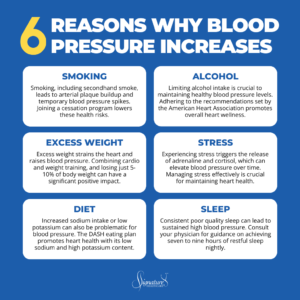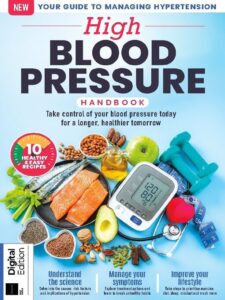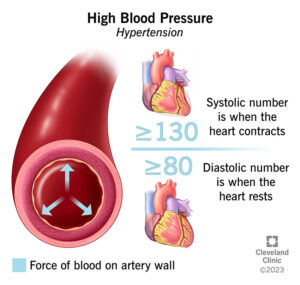Understanding Blood Pressures: Causes, Risks, And Solutions:
Introduction:
We often hear doctors and health experts talk about blood pressures, but many of us do not fully understand what it really means. Blood pressures simply show the force of blood moving through our blood vessels.
When this pressure becomes too high, it puts extra stress on the heart and arteries, leading to serious health risks. Understanding the causes, knowing the risks, and finding natural and medical solutions are very important for protecting our health.
In this article, we will discuss blood pressures in detail, in easy words, so everyone can understand and use the knowledge to live healthier lives.
Foods That Help Prevent Blood Pressures
| Food Group | Examples | How It Helps with Blood Pressures |
|---|---|---|
| Fruits | Bananas, Oranges, Apples, Berries | High in potassium, balance sodium, keep arteries healthy |
| Vegetables | Spinach, Broccoli, Carrots, Tomatoes | Rich in vitamins and minerals, reduce artery stiffness |
| Whole Grains | Brown rice, Oats, Whole wheat bread | Support heart health, provide fiber for smooth blood flow |
| Low-Fat Dairy | Milk, Yogurt, Cheese (light) | Provide calcium, support healthy blood vessel function |
| Nuts and Seeds | Almonds, Walnuts, Flaxseeds, Sunflower seeds | Contain healthy fats that reduce artery damage |
| Lean Proteins | Fish, Chicken, Beans, Lentils | Give protein without extra fat that raises blood pressures |
| Herbs & Natural Add-ons | Garlic, Ginger, Green tea, Lemon | Improve circulation, relax blood vessels, reduce stress |
What Are Blood Pressures?
Blood pressures measure how strongly blood pushes against the walls of arteries when the heart pumps. It is recorded in two numbers:
https://www.nhlbi.nih.gov/health/high-blood-pressure
- Systolic pressure – the top number, showing the pressure when the heart beats.
- Diastolic pressure – the bottom number, showing the pressure when the heart rests between beats.
Normal blood pressures are usually around 120/80 mmHg. When the numbers rise higher, doctors call it high blood pressure or hypertension. This condition may not show symptoms at first, but it silently damages the body over time.
Causes of High Blood Pressures:
There are many reasons why people develop high blood pressures. Some of the main causes include:
Unhealthy Diet:
some time we eating too much salt, oily food, junk snacks, and processed meals increases blood pressures. Too much sodium makes the body hold water, which raises the pressure inside arteries.
Lack of Physical Activity:
while we when we do not exercise or stay active, our heart becomes weaker. A weak heart cannot pump blood efficiently, leading to higher blood pressures.
Stress and Anxiety:
Constant stress makes the body release hormones that tighten blood vessels. This directly raises blood pressures and can damage the heart over time.
Obesity:
Being overweight makes the heart work harder to push blood around the body. This constant effort increases blood pressures and raises the risk of heart disease.
Smoking and Alcohol
Cigarettes and alcohol damage blood vessels and force the heart to work harder, leading to higher blood pressures.
Family History
If parents or close relatives had high blood pressures, the chances increase for future generations.
Aging
As we grow older, arteries naturally become stiffer, making blood pressures rise more easily.
Risks Linked with High Blood Pressures
If high blood pressures are not controlled, they can lead to many serious health problems:
Heart disease – constant pressure damages the heart muscle.
Stroke – high blood pressures can block or burst brain
vessels.
Kidney damage – extra pressure harms the kidneys.
Vision problems – tiny vessels in the eyes can break.
Artery damage – high blood pressures make arteries harder and narrower.
This is why high blood pressures are often called a silent killer, because many people do not know they have it until damage is already done.
Solutions to Manage Blood Pressures:
The good news is that high blood pressures can be controlled. Some important solutions are:
- Regular exercise – walking, jogging, or yoga helps the heart.
- Reducing salt – eating less sodium lowers blood pressures.
- Managing stress – meditation, breathing exercises, or hobbies reduce pressure.
- Avoiding smoking and alcohol – this protects arteries.
- Checking blood pressures regularly – early detection prevents serious risks.
- Taking medicines if prescribed – some people need tablets to control blood pressures
- Diet to Control Blood Pressures
Food plays a big role in preventing and reducing high blood pressures. A good diet includes:
https://www.nhlbi.nih.gov/health/high-blood-pressure
Fresh Fruits and Vegetables
They are rich in potassium, which balances sodium and lowers blood pressures. Bananas, oranges, spinach, and tomatoes are excellent.
Whole Grains
Brown rice, oats, and whole wheat bread improve heart health.
Low-Fat Dairy
Milk, yogurt, and cheese (in moderation) provide calcium, which supports healthy blood pressures.
Nuts and Seeds
Almonds, walnuts, and flaxseeds give good fats and reduce artery damage.
Lean Proteins
Fish, chicken, and beans are better than red meat, which may raise blood pressures.
Limit Salt and Processed Foods
Too much salt directly increases blood pressures, so fresh home-cooked food is always better.
Lifestyle Tips for Healthy Blood Pressures
- Maintain a healthy weight.
- Drink plenty of water daily.
- Get at least 7–8 hours of sleep.
- Limit coffee and caffeine.
- Practice relaxation techniques like meditation or deep breathing.
Natural Remedies for Blood Pressures
- Garlic – helps relax blood vessels.
- Ginger tea – supports circulation.
- Lemon water – flushes toxins and balances blood pressures.
- Green tea – reduces stress and keeps heart healthy.
When to See a Doctor for Blood Pressures
We should not ignore high blood pressures. If headaches, dizziness, chest pain, or blurred vision appear, it is time to see a doctor. Even without symptoms, regular check-up are important.
Conclusion
Understanding blood pressures is very important because it is directly linked to our heart, kidneys, and brain health.
High blood pressures may seem silent, but the risks are very dangerous. By eating a balanced diet, staying active, managing stress, and avoiding unhealthy habits, we can protect ourselves from the harmful effects of high blood pressures.
Small lifestyle changes make a big difference, and early care saves us from future problems.
1. What are blood pressures in simple words?
Blood pressures show how strongly blood pushes against the walls of our arteries when the heart pumps.
2. What causes high blood pressures?
High blood pressures can be caused by too much salt, stress, obesity, lack of exercise, smoking, drinking alcohol, and family history.
3. What are the risks of high blood pressures?
The risks of high blood pressures include heart disease, stroke, kidney damage, vision problems, and hardened arteries.
4. How can we prevent high blood pressures?
We can prevent high blood pressures by eating fresh fruits and vegetables, staying active, reducing stress, avoiding smoking, and limiting salt.
5. Which foods help lower blood pressures?
Foods like bananas, spinach, oats, garlic, lemon, green tea, and nuts are very good for controlling blood pressures.
6. When should I see a doctor about blood pressures?
If we feel dizziness, chest pain, headaches, or blurred vision, or if readings stay high, we should see a doctor quickly.
7. Can natural remedies help control blood pressures?
Yes, remedies like garlic, ginger tea, green tea, and lemon water can support healthy blood pressures, but serious cases need medical help too.


